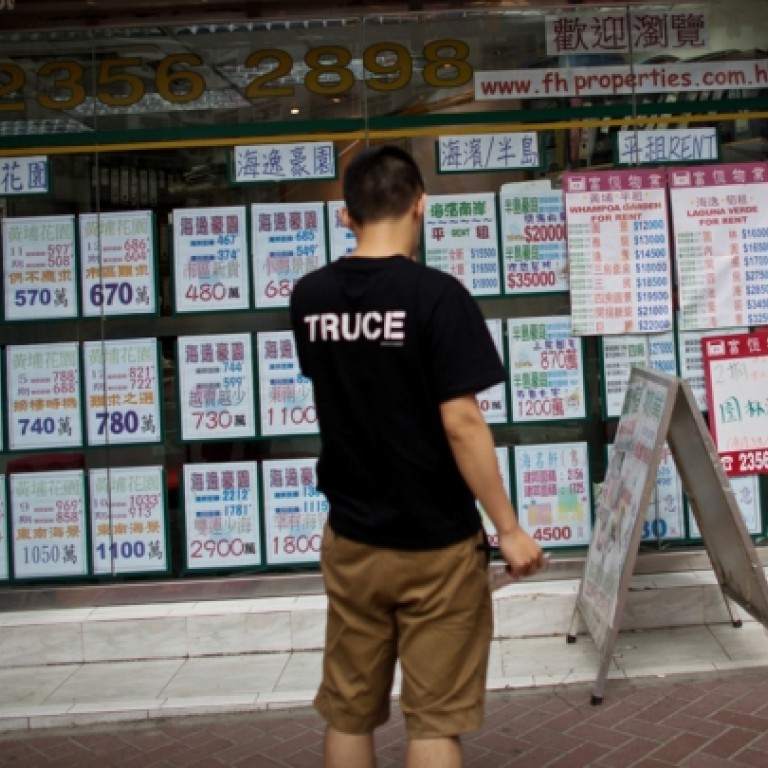
The big question for Generation Y: How can we buy a home?
A third of young Hongkongers say their dream is to own a home, but that will be far from easy
Buying a home seems to be the biggest dream of young Hongkongers.
A recent survey conducted by the University of Hong Kong at the behest of financial services company MassMutual interviewed 500 young people born in the 1980s and 1990s - known colloquially as Generation Y.
A third said their biggest ambition was to own their own home, while just less than one in five said they dreamed of owning a business or landing a dream job and one in eight said their main wish was to have more money. Only one in nine young people said their dream was to travel around the world.
The home ownership ambition will be a difficult one for young people to achieve, however. My friend lives with her parents in a public housing estate. Buying a flat in a private housing estate has been a dream of hers for many years.
Finding alternative accommodation could also become a matter of necessity. "Only my parents are eligible to live in this public housing flat," she said. "If they pass away, I can't live in the flat any more."
My friend studied hard and went to university, but she did not earn very much in the first few years after she graduated.
However, having gained more experience, she now earns nearly HK$30,000 a month, enough to be classified as middle class, based on the definition used by Chinese University's sociology department.
Even so, her salary is not enough for her to buy a flat. "I have to give HK$9,000 a month to my parents, as they have retired," she said. "My personal spending is about HK$8,000 a month. I have about HK$10,000 left.
"A second-hand Home Ownership Scheme flat costs more than HK$3 million. If I use the 'green form' to buy the flat, I have to prepare a down payment of more than HK$900,000."
People who live in public housing are eligible to buy an HOS flat without paying the land premium levy, by filing a "green form" application. But it would take my friend more than six years to save the down-payment. And she would be unable to save money for her retirement while doing so.
"Even if I got the down-payment, it is difficult for me to afford the monthly mortgage expenditure," she said. "If I rent a flat, I can't save money after paying the monthly rent. The money would not be enough for my retirement. Even though I'm a university graduate and have a good salary, I may need to rely on government subsidies after retiring.
"I may need to live in a subdivided flat if I'm no longer eligible to live in the public housing flat."
I asked Shih Wing-ching, the founder of Centaline Property Agency, for his opinion. His answer was that young people should wait until property prices drop. But who knows when they will fall to an affordable level? Henderson Land's chairman, Lee Shau-kee, offered to donate sites in the New Territories for building homes which would be sold for HK$1 million each to young buyers.
It would have been good news for young people, but the government rejected his proposal earlier this month and urged Lee to work instead with non-profit organisations such as the Housing Society.
However, without infrastructure support from the government, it is not easy to carry out such a development plan. The government has to solve the housing problem facing young people. If they feel insecure about their accommodation, the grievances against the government could continue to grow.

